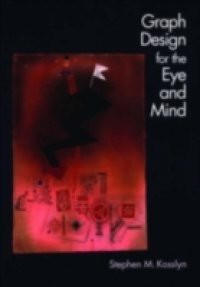Graphs have become a fixture of everyday life, used in scientific and business publications, in magazines and newspapers, on television, on billboards, and even on cereal boxes. Nonetheless, surprisingly few graphs communicate effectively, and most graphs fail because they do not take into account the goals, needs, and abilities of the viewers. In raph Design for Eye and Mind, Stephen Kosslyn addresses these problems by presenting eight psychological principles for constructing effective graphs. Each principle is solidly rooted both in the scientific literature on how we perceive and comprehend graphs and in general facts about how our eyes and brains process visual information. Kosslyn then uses these eight psychological principles as the basis for hundreds of specific recommendations that serve as a concrete, step-by-step guide to deciding whether a graph is an appropriate display to use, choosing the correct type of graph for a specific type of data and message, and then constructing graphs that will be understood at a glance. Kosslyn also includes a complete review of the scientific literature on graph perception and comprehension, and appendices that provide a quick tutorial on basic statistics and a checklist for evaluating computer-graphics programs. Graph Design for Eye and Mind is an invaluable reference for anyone who uses visual displays to convey information in the sciences, humanities, and businesses such as finance, marketing, and advertising.

